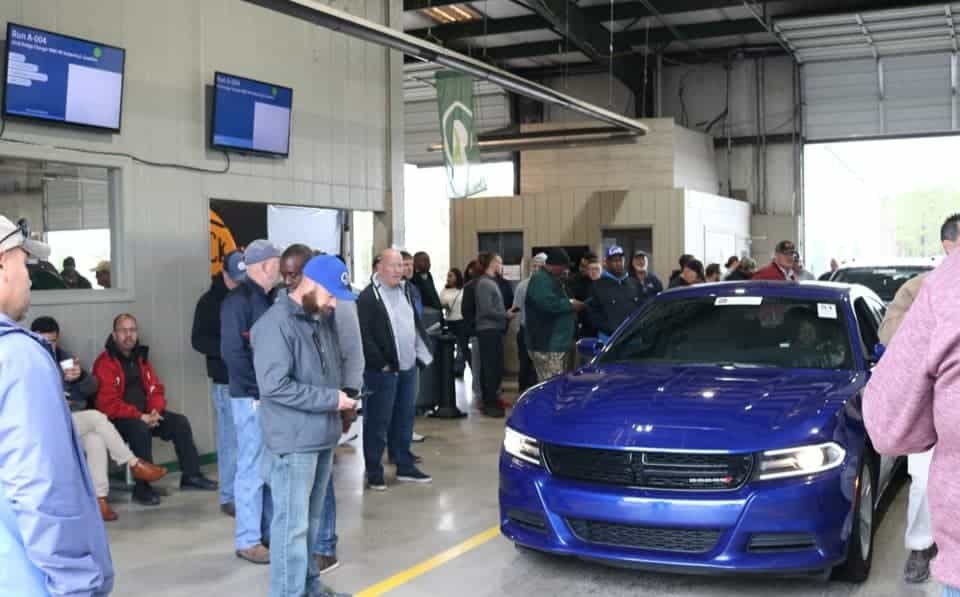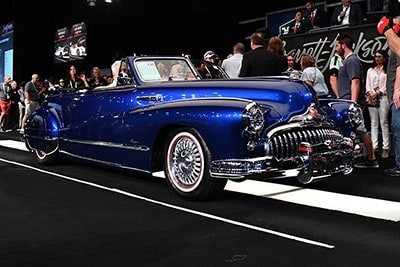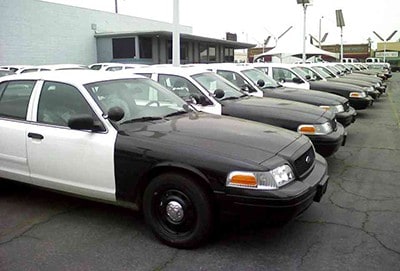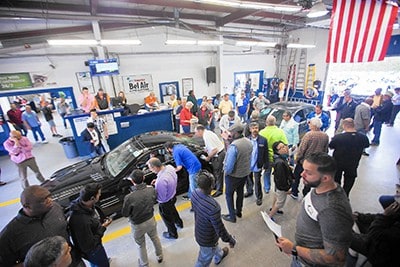Buying a Car at Auction Pros and Cons
Everyone wants to get the best deal they can when they’re buying a used car and auctions are where used cars are usually the cheapest. But before you consider it, you need to know and understand all the buying a car at auction pros and cons first.

Buying a used vehicle from an auction can be much cheaper than buying from a dealer or a private seller, but it’s also a much riskier way of buying a used car. You usually won’t get a test drive, there’s no warranty, and the vehicle could easily have a sketchy past. Cars are often sold at public auctions because they’re not fit to be retailed, so it’s definitely a case of ‘buyer beware.’
- Why would you buy a used car from an auction?
- What are the different types of car auctions?
- Why do cars end up at auction?
- Do you know what you’re buying?
- A true story
- What are your consumer rights?
- How to buy and pay at an auction
- Should you give an auction a go then?
Why would you buy a used car from an auction?
The simple and obvious answer for why you would want to buy a used car from an auction is price. A car auction is a great place to buy a vehicle for a fraction of what it would cost to buy from a dealer or even a private seller, and at some auctions, there’s a tremendous amount of vehicles for sale to choose from too.
Whether you’re looking for a pickup truck, a midsize sedan, a family minivan, an SUV, a cheap compact hatch for a new driver, or just about anything else for that matter, you’ll be able to find an auction somewhere that will cater for your needs.
There’s another reason you might want to buy from an auction too, and that’s because it can be a whole load of fun. I often go to car auctions or even log into one online just for the fun of it and to try and guess how much each model going over the block is going to go for. I’ve no intention of buying anything, but I just love the whole experience.
If you want to get information about the most trusted source for US government vehicle auctions, then check out this link to gov-auctions.org. And if you want a $1 trial subscription to a service that gives you entry into the world of government auctions then click here now!
What are the different types of car auctions?
There’s a type of auction that’s so incredibly popular these days they even get onto the TV, and that’s the high-end classic car auctions such as Barrett-Jackson, Mecum and Sotheby’s. These auctions have restored and unrestored classics, barn-finds, resto-mods and all sorts of fabulous vehicles gear heads can’t get enough of.
This kind of auction is a fairly safe bet to buy from, but you’re going to need deep pockets and they’re not the type of auction we’re really concerned with here.

Another big auction type is the closed auction that’s only open to trade buyers. These are where lease companies and rental companies sell the cars they’re replacing, so the cars are pretty new and competition is fierce because this is where dealers go to get good quality stock for their inventories.
If you can find one that’s open to the public you can get a good quality used vehicle for a decent price, but you’re probably better paying a little extra to get one from a dealer with a warranty.
Public auctions are where the bargains are to be had because they’re where we find the ordinary, every day, and mundane. You’re not going to come across an unmolested 1969 Ford Mustang going for a song, but you’ll be spoiled for choice if you want an old Crown Vic or a Toyota Corolla.
These public auctions have become increasingly popular in recent years, and they fall into two different categories; government auctions and regular public auctions.
* Government auctions – These are where the feds and the local authorities dispose of vehicles they need to move on or replace, but they’re also where the likes of the FBI, DEA, IRS and others sell off vehicles they’ve confiscated in raids and court proceedings.
Many of the government and local authority vehicles sold are well-maintained and no more than two or three years old, but a lot of them will have a lot of miles on the clock too.
The ones that have been confiscated or seized through the courts are more of a crapshoot because they may not have been maintained anywhere near as well as those more run-of-the-mill models the police or county hall are looking to get rid of.
On the other hand, there are sometimes some pretty sweet rides confiscated and sold by the DEA and FBI, but the most exotic might be sold at more exclusive events than an open auction.
*Public auctions – Public auctions are where everything I haven’t already mentioned gets sold, and these are where the prices are the lowest. Unfortunately, this is where the quality is the lowest too. If you’re seriously going to consider buying from one of these auctions you really do need to know what you’re doing, and if you’re not particularly mechanically minded you’d better take a friend who is. You might find a hidden gem at a bargain price, but you’re much more likely to end up with a lemon.
Why do cars end up at auction?
Cars are sold at the likes of Barrett-Jackson because the sellers want to try and get big money, but without having the hassle of selling privately and having to advertise and deal with buyers. Government auctions are specifically designed for the sole purpose of being a quick and straightforward way for the authorities to dispose of unwanted vehicles with minimum fuss and effort.
The truth about public auctions is they’re where cars go to be sold that probably won’t sell anywhere else. The vehicles for sale at auctions come from many sources, but the most common are trade-ins dealers who won’t put them on their lots because they’re too old or in a condition that’s too bad for them to retail.
Some rough repossessions will end up at public auctions too because they need to be sold as quickly as possible for whatever money they can fetch to go towards the debt.
Some former lease and rental cars might end up at public auctions, but these will only be the ones that have too many miles or are in a condition that’s too bad for a closed trade auction.

Do you know what you’re really buying?
You might know a Chevy Malibu from an Impala or Ford Flex from a Land Rover LR3, but do you really know what you’re buying when you’re at an auction? By this I mean do you know what potential faults and problems to look for? Do you know the tell-tale signs of an accident repair or a vehicle with questionable miles on the odometer that might have been wound back? If not, then a public auction isn’t the place for you.
At high-end auctions, you might be able to make arrangements to test drive a vehicle going up for auction, but this is the exception rather than the rule at auctions. You will have a chance to sit in the cars and have a look under the hood before the sale, and you may even be allowed to start them up.
That’s about it though, so if you need to have a test drive before you buy then an auction isn’t going to be the place for you to buy from.
A true story
I once had a customer who wanted to pay $20,000 for a used luxury SUV I had on the lot at $27,000. I was willing to come down to around $26,000, but I knew it was a sought-after model with low miles and a perfect service history. He was convinced I was asking too much and said he would go and buy elsewhere.
A couple of weeks later my service manager came running upstairs to get me outside to look at a vehicle that had just come in. The air suspension was completely collapsed on one side and the engine was running in limp-home mode.
It turns out it was owned by the guy who wanted to pay $20k for my $27k SUV and he’d bought this one at auction for – you guessed it – $20,000. However, on the way home from the auction it broke down and was recovered to our dealership, and as it wasn’t covered by any warranty it was going to cost about $5,000 to get fixed.
Who knows what else might have been wrong with it that could have come to light later? I suppose $26,000 for the one on the lot with full history and a 12-month main-dealer warranty didn’t look so expensive to him after his auction “bargain” was driven to us on a trailer?
What are your consumer rights?
Most of the time you will have few if any, consumer rights when you buy at auction. Most of the time the cars are sold on an “as-is” basis, so what you see is what you get. If a vehicle turns out to be stolen you might have some come back on the auction house, but this is unlikely to happen because the seller will have had to provide a clear title for the vehicle to be accepted into the auction.
If you want to be able to complain and get some sort of recompense if things go wrong with the car you’ve just bought for a knock-down price at auction, you shouldn’t be looking to buy from an auction in the first place.
You know the sayings “you get what you pay for” and “if something seems too good to be true it probably is?” Well, they’re very apt when it comes to car auctions.

How to buy and pay at auctions
A lot of the time you’ll have to register with the auctioneer to be able to bid at a car auction, but not always. Once you’ve become the successful bidder on a lot at the auction you’ll be asked to leave a cash deposit on the vehicle you bought, and you’ll be expected to return within 24 hours with the full balance in cash to drive away in the vehicle you’ve won.
Don’t even think of bidding on a car at auction if you don’t have to cash to pay for it. There are no terms and no finance on offer at auctions. Some may let you pay with a bank card or banker’s draft, but cash is usually king.
The winning bid amount and the price you actually have to pay won’t be the same either. The auction house charges fees to both the seller and the buyer, so make sure you know how much they’re going to add on before you think about bidding.
Should you give auctions a go then?
In my humble opinion, you really have to know what you’re doing to take the risk involved with buying a car at auction. You’ll be amazed at how clean and shiny they look as they come across the block, and if you don’t know your mechanicals they might even sound and run ok too.
You’d be amazed at what some sellers can and will do to make a dodgy vehicle seem better just to get it sold, and you have to be an expert to spot it sometimes.
Even experts get their fingers burned at auctions, but they take it as a calculated risk and part of what they do. I valued and sold thousands of cars in my time in the auto business and made my employers an awful lot of profit in the process.
However, when I left I had a go at buying at auction and flipping the cars for a profit using my skill and experience. I bought four cars over a couple of weeks and I broke even on one and lost money on the other three.

Auctions really are a case of “buyer beware.”Government auctions are a better bet than public auctions, but they’re still a risk and it’s questionable how big a saving you’re going to make when all things are considered. Even so, go to an auction and have a look. They’re a lot of fun if nothing else.
